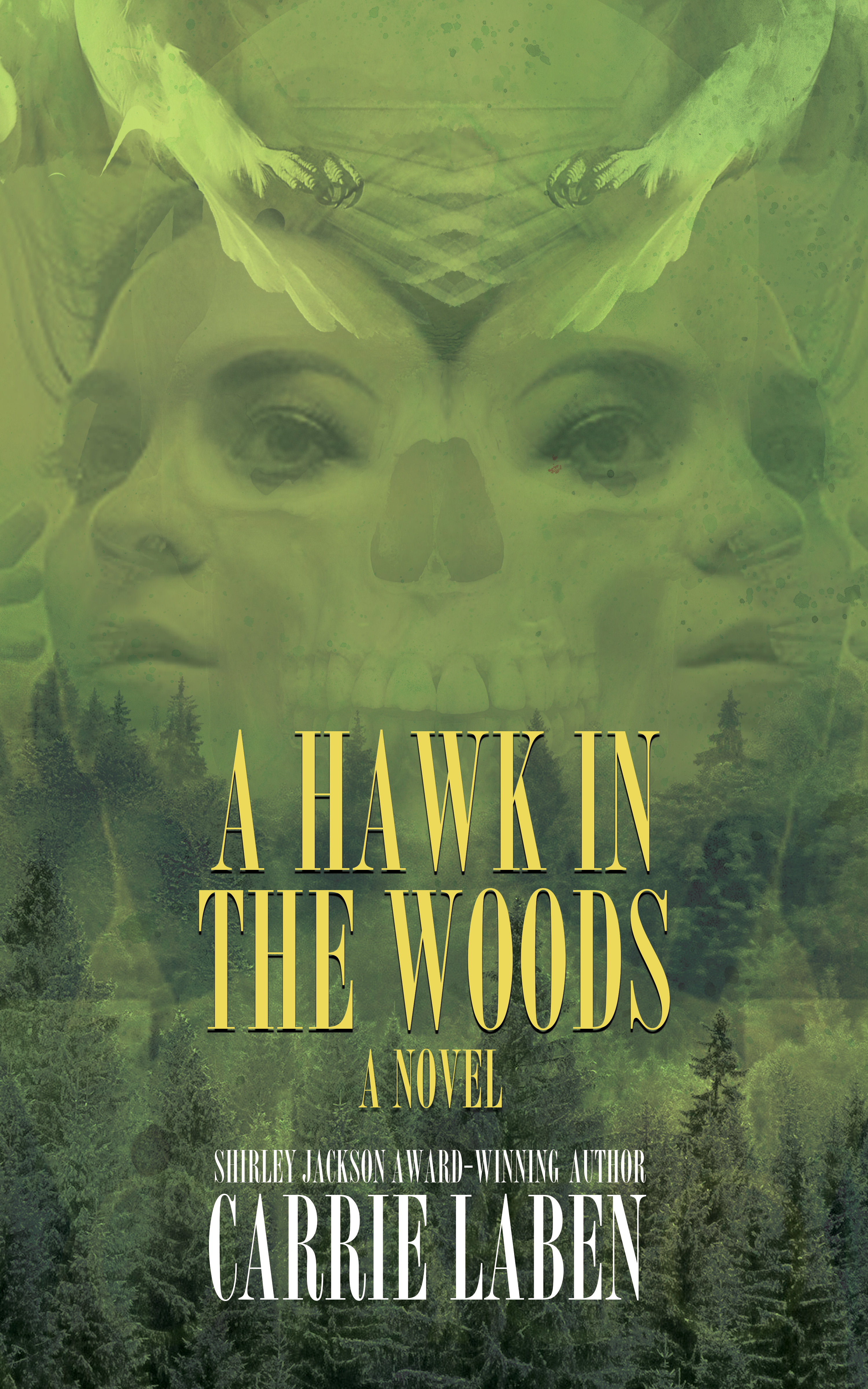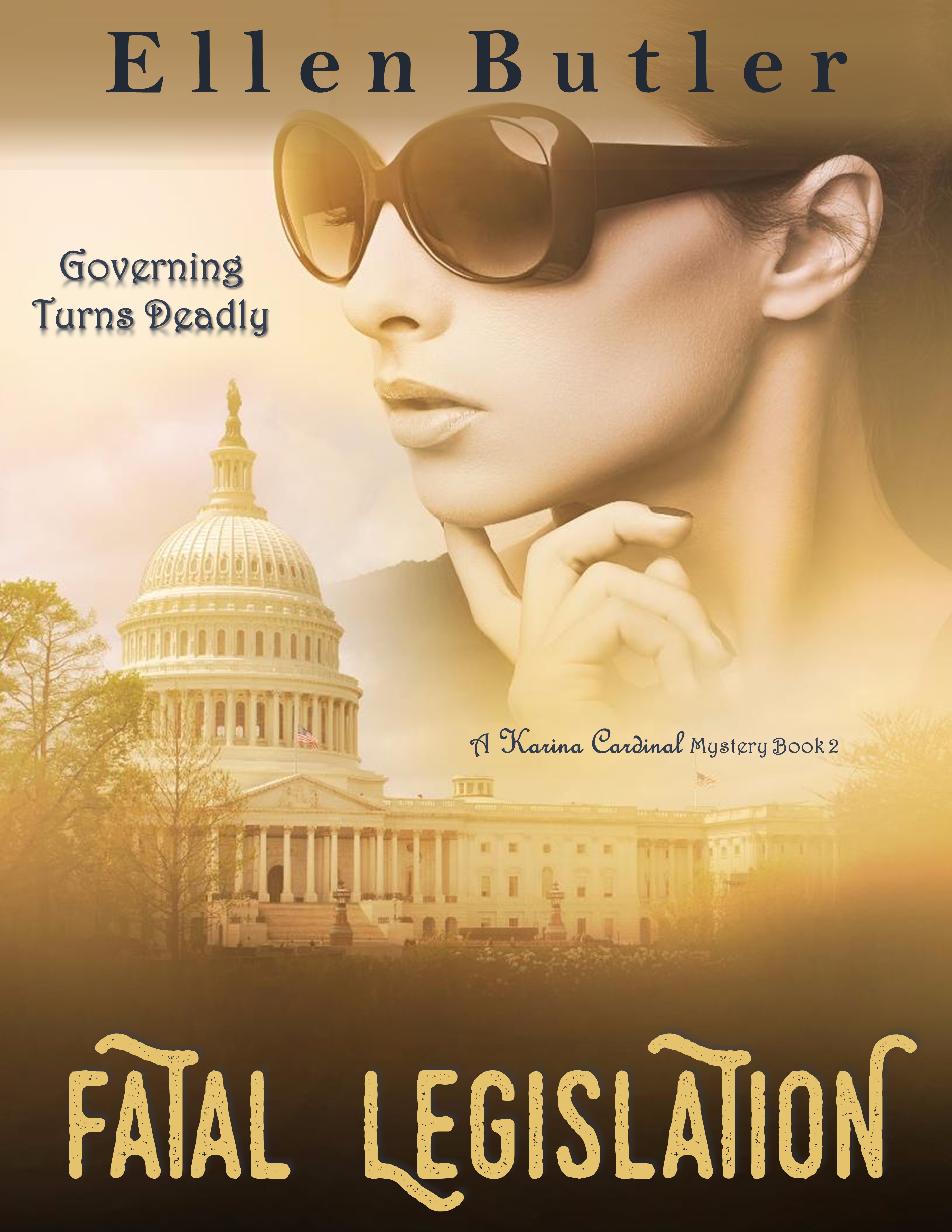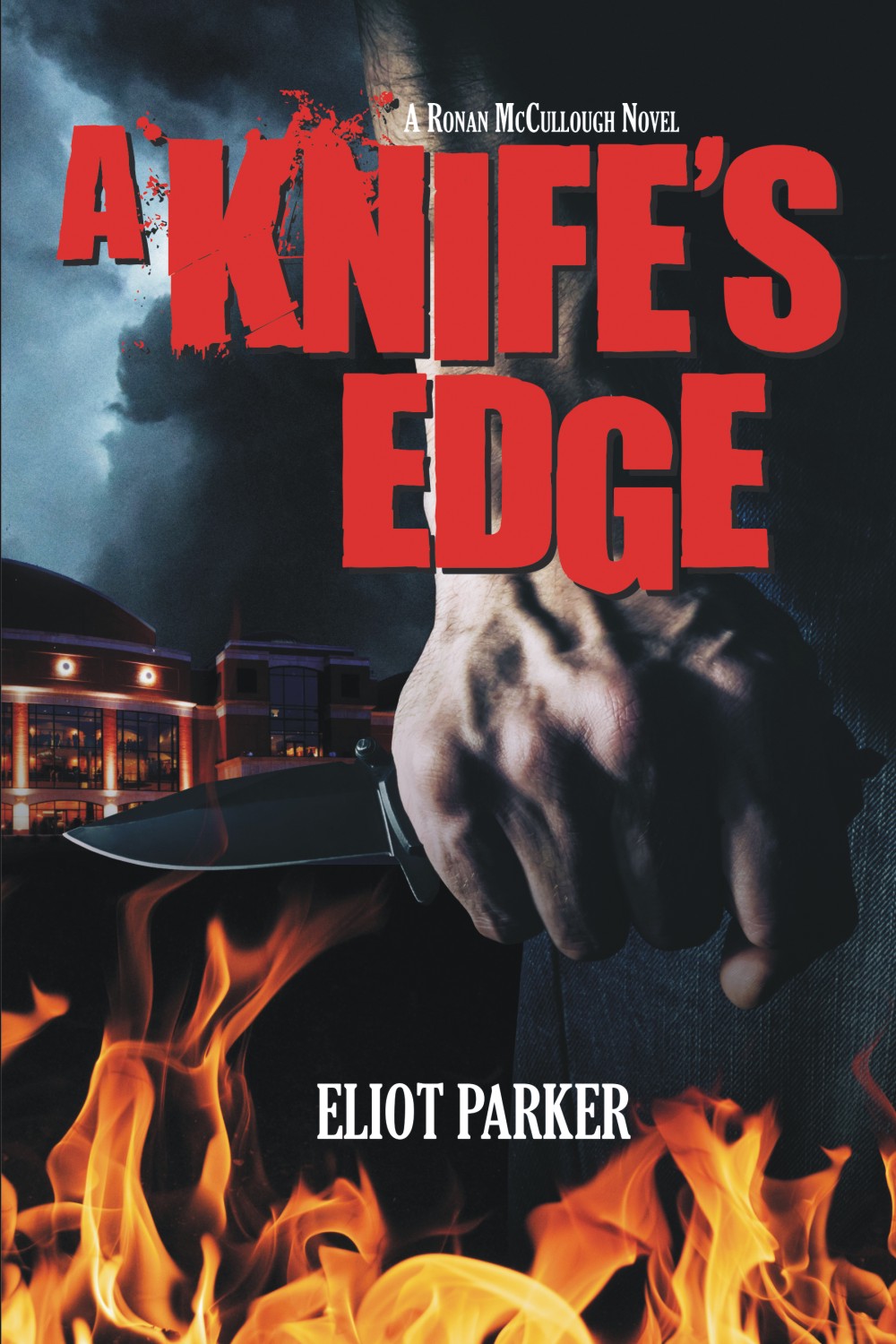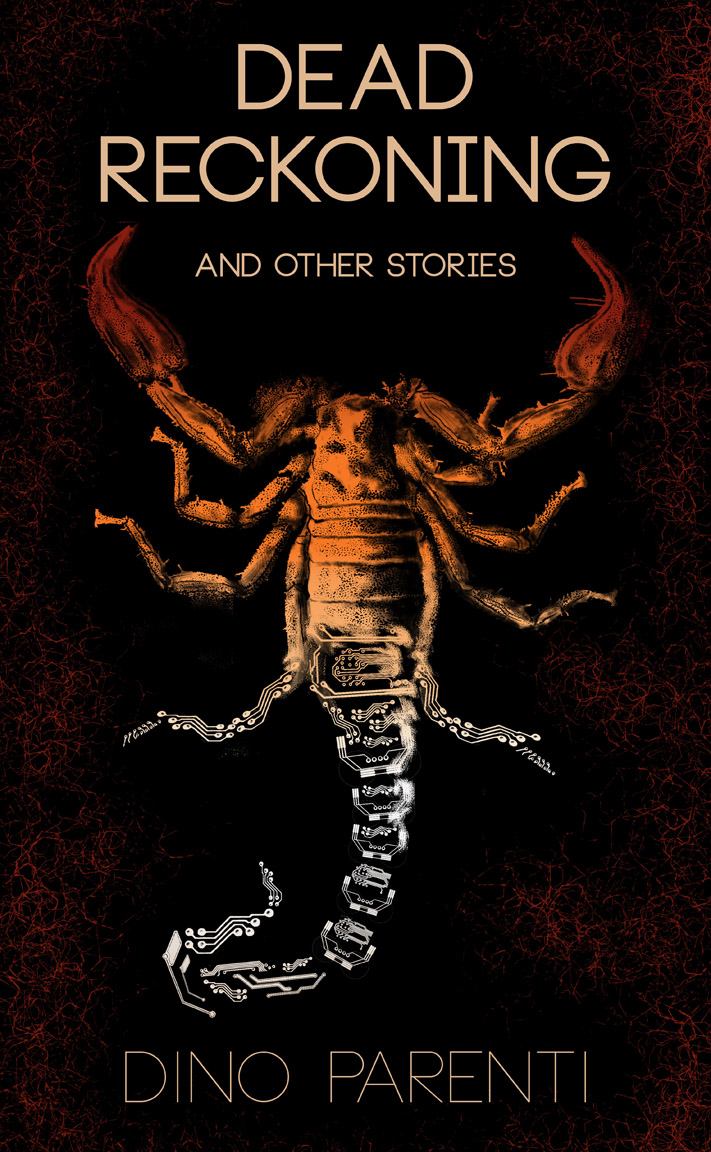This week on The Scariest Part, my guest is Carrie Laben. I’ve known Carrie for many years now, and in that time I’ve been lucky enough to watch her writing career flourish. Now her long-awaited debut novel has finally arrived, titled A Hawk in the Woods. Here is the publisher’s description:
When newscaster Abby Waite is diagnosed with a potentially terminal illness, she decides to do the logical thing…break her twin sister Martha out of prison and hit the road. Their destination is the Waite family cabin in Minnesota where Abby plans a family reunion of sorts. But when you come from a family where your grandfather frequently took control of your body during your youth, where your mother tried to inhabit your mind and suck your youthful energies out of you, and where so many dark secrets — and bodies, even — are buried, such a family meeting promises to be nothing short of complicated…
And now, let’s hear what the scariest part was for Carrie Laben:
A Hawk in the Woods deals with many sorts of primal fears — everything from terminal illness to body theft and mind control to running from the law to deep-rooted betrayals by the people who should be our closest allies. There are also two separate gun fights, an oil tanker explosion, a car crash, and a mortal threat to an adorable Labrador Retriever.
The most frightening scene to write wasn’t any of those.
It also wasn’t the scene with the necromancy, or the one where the protagonists are arrested by a bad cop from a backwater jurisdiction, or the one where the titular hawk nearly scalps one of the main characters.
The scene that shook me while I was writing it takes place in an elementary school classroom, and if you were observing the characters from the outside nothing particularly dramatic happens. A teacher takes a dislike to the main character, Abby, and her twin sister Martha. After a classmate dies, she finally gives full vent to this dislike — first by confiscating the plastic beaded bracelet that Abby can’t help fidgeting with, and then by making her lead the class in prayer. Both of these actions seem minor, and if the teacher were defending herself she could easily make them sound reasonable in context — but their impact is maximum cruelty to someone who can’t fight back.
Quiet as it is, this scene functions as a hinge in the novel. Abby and Martha’s grandfather’s magic is what killed the other child, so in a way they are implicated — but they’re also innocent. The teacher’s aggressive actions intensifies the preexisting wedge between the twins and the other children. The teacher, in her role as an authority, chooses to play up the difference between Abby and her family and everyone else in the community — a difference Abby already recognizes, but in a different world might have overcome.
While I was writing this scene I found myself on the edge of tears several times. I’ve never experienced anything directly parallel, but I chose to draw from a teacher of my own who was convinced that I was cheating when I wasn’t. That sensation of being inescapably labelled, humiliated, and dismissed in front of an audience — and of being in the hands of an irrational authority with no recourse — was what I really wanted to capture.
I’ve never been in a gunfight, or an oil tanker explosion, or at a necromantic rite. But I’ve been a child and felt powerless while an adult — a teacher, who I was supposed to admire and respect — looked at me and categorized me and punished me based on that categorization. And that feeling obviously stuck with me. When I was labelled, I knew it was unfair but I also knew that protesting or arguing would do no good. This is what Abby senses as well. She’s in a no-win situation. She is powerless, and the powerlessness is terrifying.
But the momentary sense of powerlessness, while awful, isn’t the scariest part of this scariest part. Instead, it’s what happens after. For me, I had many other sources of validation — parents, other teachers, and a few friends who believed in me, hobbies and activities in which I could thrive, a life well beyond this one snap judgement (including growing up and writing a book! With names changed to protect the innocent, of course.) What Abby has, just about all she has, is a family history of dark magic — magic she won’t hesitate to use in self-defense, and continue to use down the years against a community that made her an outsider.
A Hawk in the Woods: Word Horde / Amazon / Barnes & Noble / Powell’s / IndieBound
Carrie Laben: Website / Facebook / Twitter
Carrie Laben is the author of the novel A Hawk in the Woods, published March 26, 2019 by Word Horde. Her work has also appeared in such venues as Apex, Birding, The Dark, Electric Literature, Indiana Review, Okey-Panky, and Outlook Springs, as well as many anthologies. In 2017 she won the Shirley Jackson Award in Short Fiction for her story “Postcards from Natalie” and Duke University’s Documentary Essay Prize for the essay “The Wrong Place”. She has been a MacDowell Fellow and a resident at the Anne LaBastille Memorial Residency and Brush Creek. She holds an MFA from the University of Montana and now resides in Queens, where she spends a lot of time looking at birds.





